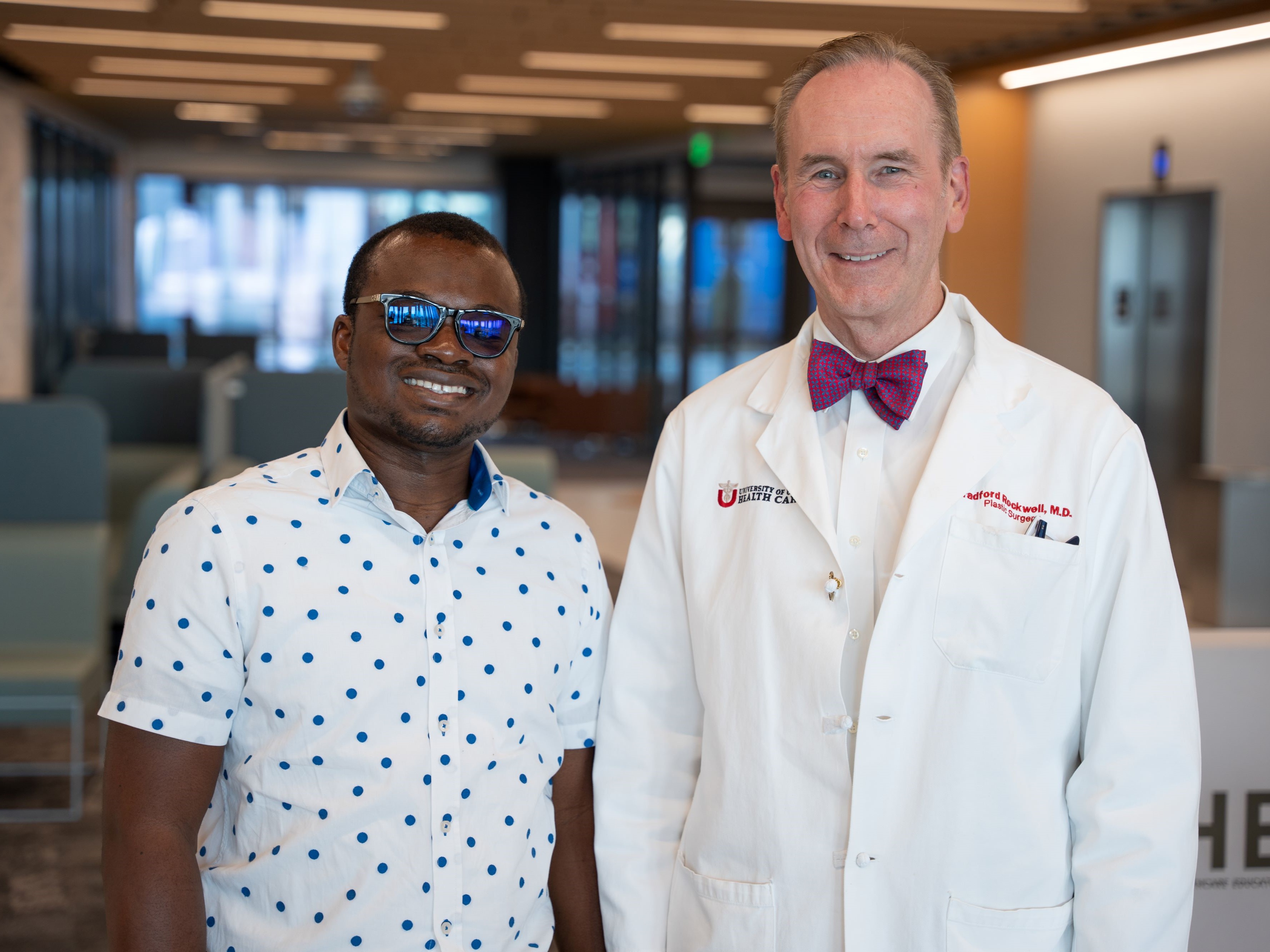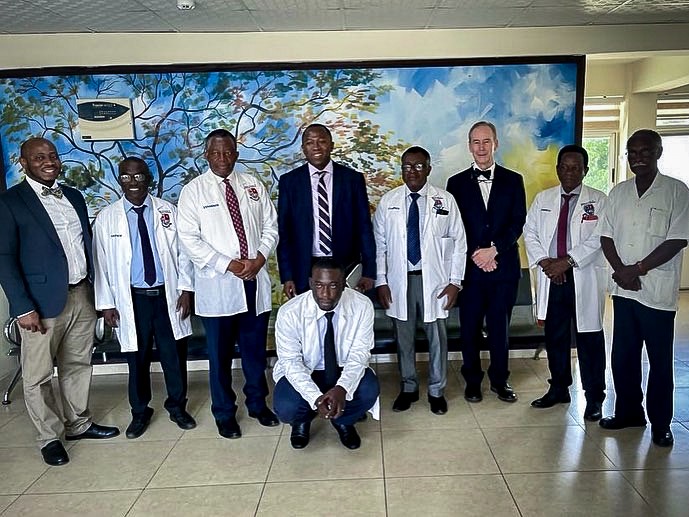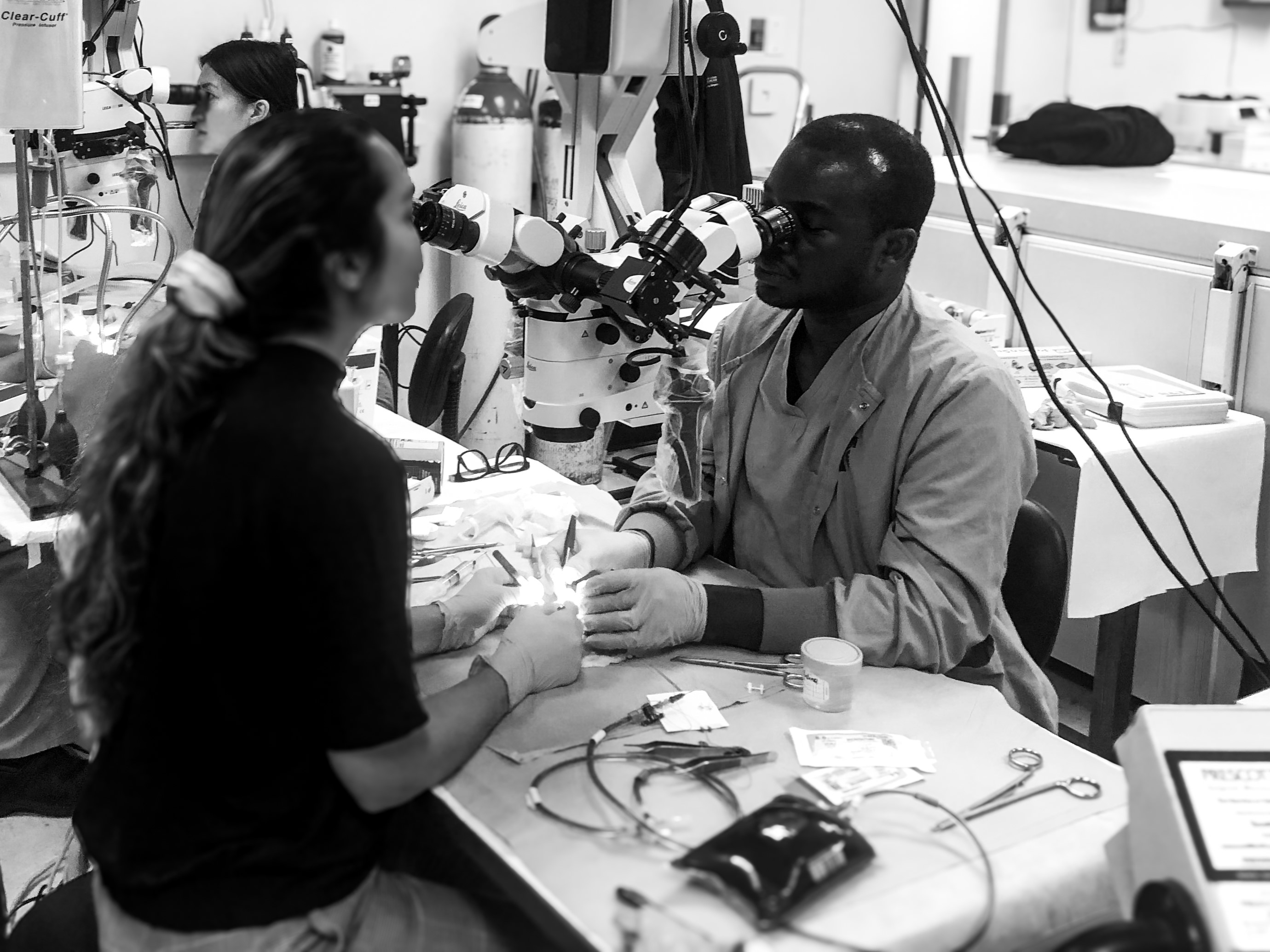New Hand Surgery Fellowship in Ghana Helps Elevate Care, Improving Patient Quality of Life
A long-standing collaboration between the Center for Global Surgery at University of Utah Health and Komfo Anokye Teaching Hospital (KATH) in Kumasi, Ghana, is helping fill a much-needed gap in healthcare for locals.
In partnership with KATH’s surgery department, Brad Rockwell, MD, U of U Health plastic and reconstructive surgeon, helped spearhead efforts to establish a new hand surgery fellowship in Ghana – the first of its kind in the country.

“This is the next step in our plastic surgery relationship with KATH, and it’s going to really enhance the care available for patients,” Rockwell said. “As each fellow brings their skills to their hospital, it will start to snowball and elevate the level of hand care across the board.”
The fellowship is the result of more than a decade of relationship-building and collaboration led by Rockwell. He first visited Ghana with a colleague in 2012 for a short surgical trip but quickly realized the opportunity for a long-term partnership and made the visit an annual venture. The trips are done entirely on volunteer time, but Rockwell noted that the value outweighs the sacrifice.
“Many others go to places like Ghana once and then go somewhere different the next year, but I saw it as an opportunity for growth,” Rockwell reflected. “I could go on vacation for a week, or I could go to Ghana and help people for a week. I choose Ghana.”
At the beginning of the partnership, Rockwell primarily assisted with general trauma surgeries , but the collaboration quickly grew and began focusing on teaching and advancing new techniques in other areas. As the partnership expanded, he knew hand trauma needed to be a focus.
“Through the years, we’ve covered a lot of different specialties, but with the prevalence of hand injuries in Ghana, the hand fellowship was the natural next step,” Rockwell noted.
Few fellowships exist in West Africa, and even fewer focus on such specific areas of surgery. In addition, the area has a high rate of hand-related surgical cases, primarily caused by motor vehicle accidents, work-related incidents, and congenital hand deformities.
In countries like Ghana, a hand injury can be detrimental to a person’s livelihood, affecting not only them but often their entire family. Improving the level of hand care available can restore patients’ ability to work, be independent, and thrive – a priceless form of relief for many.

While the need for a hand fellowship was clear, the opportunity to launch the program came unexpectedly. At a conference, Rockwell was serendipitously involved in a conversation among peers who were interested in finding a hand-focused specialty in Africa. Without hesitation, he suggested Ghana as a possible location. From there, with the support of U of U Health, the fellowship took shape.
After several years of perfecting curriculum and working with KATH to get the program approved, the fellowship is in its second year. Papa Kwesi S. Fiifi-Yankson, MD, FWACS, from KATH is just the second plastic and reconstructive surgeon to join the program.
Fiifi-Yankson had previously collaborated with Rockwell during his visits, giving him insight into the creation of the fellowship. In addition, he had already gained extensive experience treating hand trauma, making the fellowship the ideal next opportunity.
Fiifi-Yankson said, “I want to become the best surgeon I can be so I can offer optimal care to patients. Having more surgeons who are experienced and can share their skills with others is important for improving hand care throughout the country.”

Already an accomplished physician, Fiifi-Yankson has continued to flourish in the program with guidance from fellowship consultants and mentorship from Rockwell. He regularly treats highly complicated hand trauma cases, and he has already begun sharing his knowledge with residents at KATH. He noted that his ultimate goal is improving patient care to give back to the community.
“Patients don’t always receive the care they need, so I want to improve public awareness of the services available,” Fiifi-Yankson said. “Increasing awareness would help patients get proper treatment and raise overall community health.
Fiifi-Yankson will complete his fellowship in December 2023, but he and Rockwell are far from finished with their work. The two have already begun testing strategies to incorporate microsurgery into the hand fellowship.
In addition, with the help of U of U Health and KATH, they hope to deepen the partnership between the two institutions by creating more opportunities for fellows in Ghana to visit and learn in Utah during their training.
“There's huge educational benefits to seeing how other institutions do things, and vice versa,” Rockwell said. “We all work with different resources and equipment, so it would be beneficial for the fellows to come here to learn for a while, and we can also take our residents there. The main goal is to just keep elevating the level of care we can provide no matter where we’re practicing.”